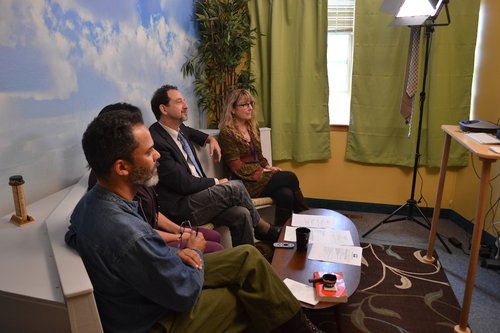Announcing CAPC's Top Blog Posts of 2019

Happy New Year from the CAPC team! We're excited to start off 2020 by announcing some of the most-read blog posts of last year. Scroll through to see if any of your favorites made the list and to catch up on reading!
Clinical Care, Collaboration, and More
Pediatric Clinicians: Prescribe an Exciting Week of Normality
Thousands of children living with cancer go to camp each summer, thanks to more than a hundred specialized camps around the country.
Telemedicine 3.0: How Video Technology Can Support People With Serious Illness

Dr. Michael Fratkin discusses the important role that telemedicine plays in palliative care—for patients, clinicians, and programs.
The Social Worker’s Role in Community Palliative Care
CAPC and the Social Work Hospice and Palliative Care Network (SWHPN) gathered a dozen palliative care social workers to explore challenges with their roles.
5 Ways to Improve Hospitalist-Palliative Care Collaboration
Dr. Karl Bezak, former academic hospitalist turned palliative care specialist, shares how hospitalist and palliative care teams can work together most effectively.
Program Design, Increasing Referrals, and Staffing
Reducing Hospital Readmissions Through Palliative Care
The palliative care team at Mercy discusses how they have reduced hospital admissions and implemented initiatives to improve quality of life for people living with serious illness, and their families.
How to Include a Pharmacist in the Palliative Care Mix

A discussion around the importance of palliative care pharmacy, including strategies for programs to partner with pharmacists.
Improving the Use of Palliative Care with HealthGrades
Dr. Chad Boult makes the case for clinicians to refer their patients to palliative care — besides the humanitarian and financial benefits, quality ratings through HealthGrades may just be the key.
40 Recipes for Success from Palliative Care Programs
Curated episodes of CAPC's podcast, based on trends that we found amongst member palliative care programs, and in the field.
Leadership and Training
Calling All Palliative Care Leaders: We Asked, You Answered

Outcomes of a recent survey, which included questions about what keeps palliative care leaders up at night, and what CAPC can do to help.
Addressing a Workforce Crisis: Innovations in Training for HPM Specialists
With a shortage in board-certified hospice and palliative medicine (HPM) specialists, Dr. Laura Dingfield addresses the need to think creatively about expanding the pool, offering the University of Pennsylvania's mid-career training model as an example.
Promoting Nurse Leadership in Palliative Care

With more and more nurses leading palliative care programs around the country, nurses from around the country joined a focus group to discuss current challenges and solutions to position palliative care nurse leaders for success.
Improving Health Equity
Increasing Awareness of Palliative Care for Minorities

The disparities in palliative care access and quality for minorities in the United States, and ways to remedy this.
Project ECHO: A Disruptive Innovation to Expand Palliative Care
Dr. Elizabeth Burpee provides an update on Project ECHO to Expand Palliative Care in the Carolinas.
Movements in Payment and Policy
FAQs on the New Seriously Ill Population (SIP) Alternative Payment Model Option
CAPC's policy team provides insights about the new SIP Alternative Payment Model, based on the formal Request for Applications (RFA).
A New Foundation for State Palliative Care Policy
Read along for resources to help support state champions in their efforts to further increase palliative access, and ensure quality.